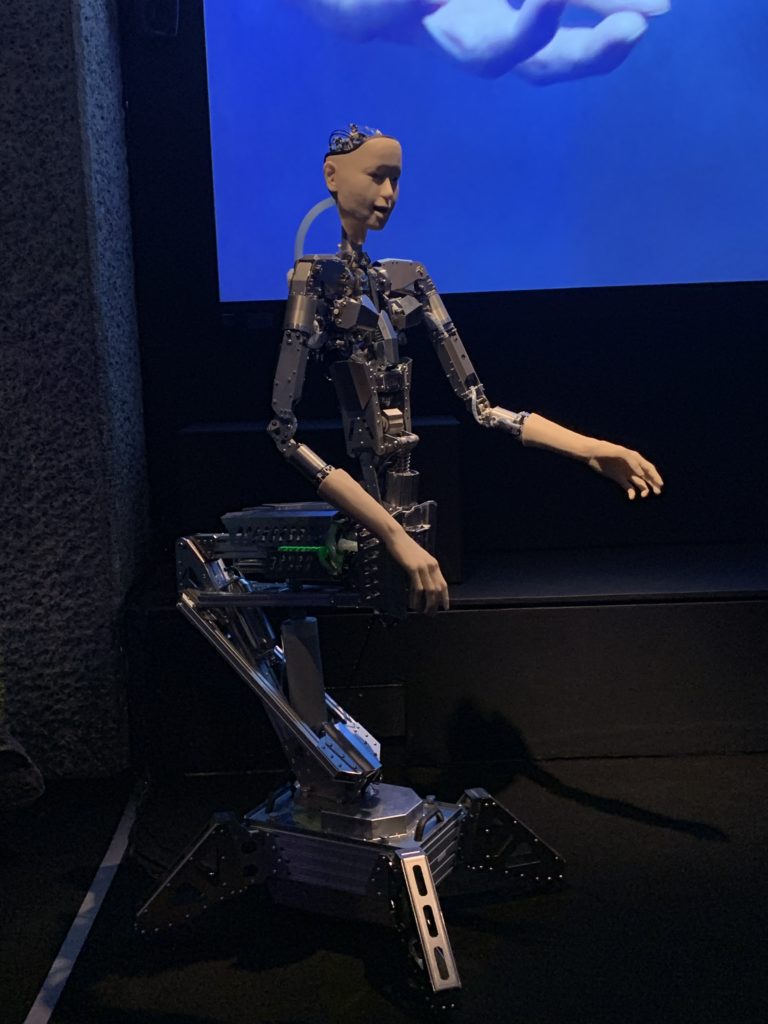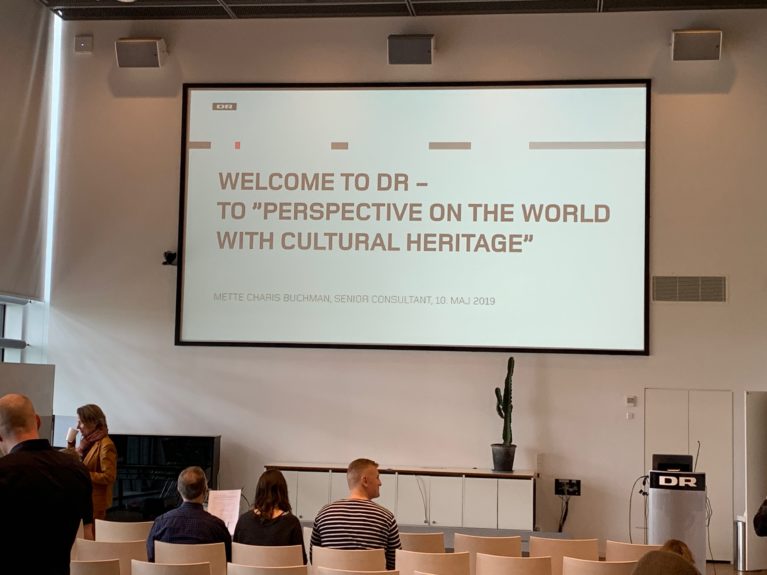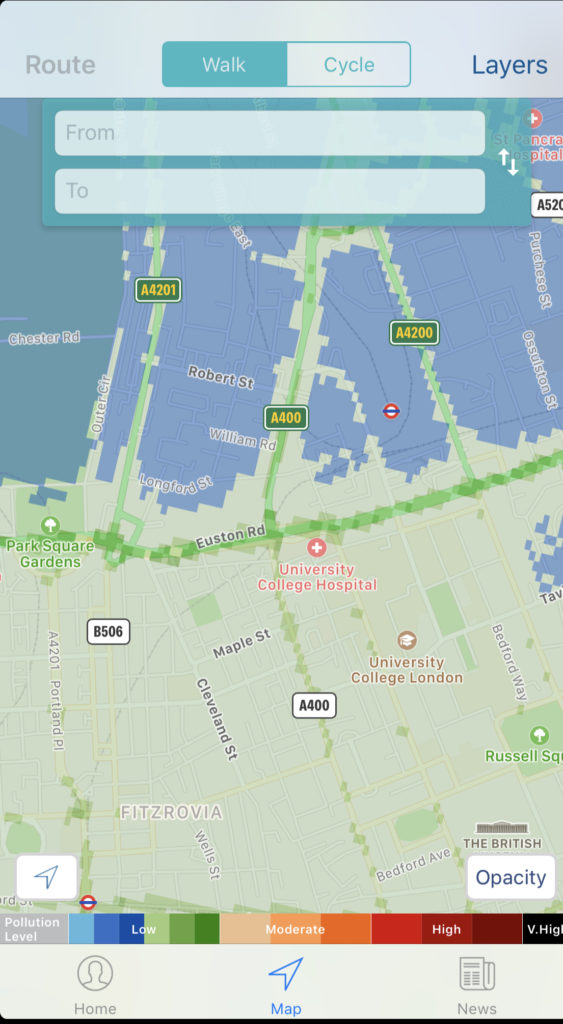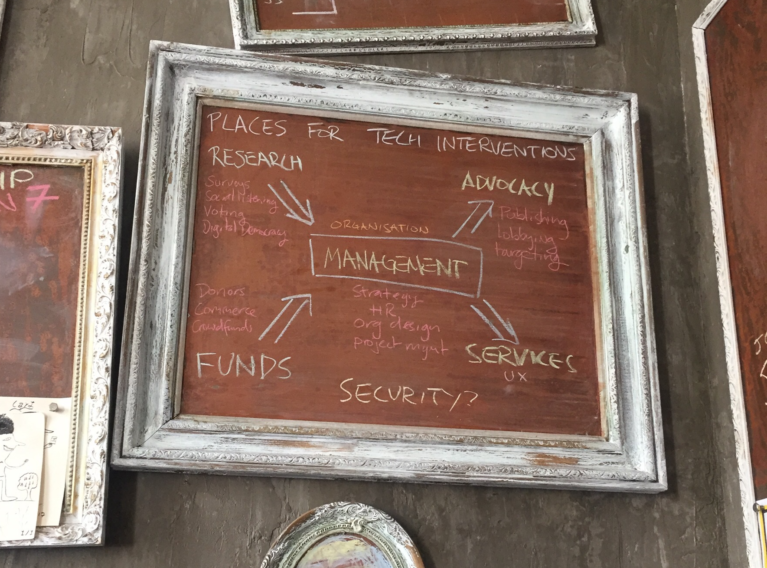[I wrote this obituary for The Times. The New York Times has just published its own obit in its ‘Overlooked’ series so it seems a good opportunity to disinter this one]
Professor of Computers and Information, Cambridge University, and pioneer in information retrieval and natural language processing.
Throughout her long and distinguished career Karen Spärck Jones played a leading international role in the field of information retrieval, an aspect of computer science that was rather disregarded until the arrival of the World Wide Web made effective searching a vital research priority. Today’s search engines rely on the fundamental research she carried out from the 1960’s onwards at Cambridge University.
Karen Spärck Jones was born in Huddersfield, Yorkshire, on August 26th, 1935, the daughter of chemistry lecturer Owen Jones and Ida Spärck. Her mother, a Norwegian, had worked for the government-in-exile during the Second World War.
After attending a local grammar school she came up to Girton College, Cambridge in 1953 to read history before switching to philosophy, or Moral Sciences as it was called at the time.
She graduated in 1956 and after a brief and unsatisfying spell teaching was invited to join the Cambridge Language Research Unit by its director Margaret Masterman following an introduction from Roger Needham, a friend from undergraduate days who was studying for a PhD in the Mathematical Laboratory (later the Computer Laboratory).
CLRU was working on natural language processing, looking at how computers could determine the meaning of sentences. Masterman, a former student of Wittgenstein’s, believed that meaning, not grammar, was the key to understanding languages and this view greatly influenced Spärck Jones’ work.
Spärck Jones was attempting to build a thesaurus automatically and as part of her research she transcribed the whole of Roget’s Thesaurus onto punched cards, working closely with Needham on ways to classify information automatically. She obtained her doctorate in 1964 and her thesis, published as ‘Synonymy and Semantic Classification’, remains important even today.
Needham and Spärck Jones married in 1958 and both remained at Cambridge University throughout their careers. However while Needham rapidly obtained a tenured position and eventually became head of the Computer Lab Spärck Jones had to rely on short-term research fellowships to fund her work until she was awarded a personal professorship in 1999.
In the 1960’s she began working in the field of information retrieval, developing a technique known as ‘IDF term weighting’ which has become central to many Web-based search tools, and in 1968 she moved from CLRU to the Computer Laboratory where she remained for the rest of her life.
An active researcher and prolific writer she published nine books and over two hundred substantial papers, describing her field as ‘natural language information processing’, dealing with information in natural languages and information that is conveyed by natural language.
An inspiring teacher and supervisor, she played a full part in the academic life of the Computer Laboratory and the University, and was also a principal advisor to the Alvey research directorate which funded UK-based computing research in the 1980’s. In 1999 she organised the extensive celebrations of the 50thanniversary of the EDSAC computer in Cambridge.
She served as president of the Association for Computational Linguistics in 1994 and was elected a Fellow of the British Academy in 1995. She was a research fellow at Newnham College from 1965 to 1968, a Fellow of Darwin College from 1968 to 1980, and became a Fellow of Wolfson College in 2000, becoming an Honorary Fellow in 2002.
She formally retired from the Computer Laboratory in 2002 but this did not diminish her commitment and she continued to work full time in the Laboratory. Throughout her career she tried to bring more women into computing, arguing that it was too important a discipline to be left to men.
Roger Needham, who had left the Computer Laboratory to become director of Microsoft Research Cambridge, based in the building next door, died in 2003.
Spärck Jones received many honours during her long and distinguished career, including the Association for Computational Linguistics Lifetime Achievement Award and the Institute for Information Scientists research award.
In 2007 she was awarded the Lovelace Medal by the British Computer Society, the first woman to receive it, and the Allan Newell Award and Athena Lectureship by the American Association for Computing Machinery. With typical foresight she recorded an acceptance lecture before her final illness made it impossible.
Outside computing and linguistics her interests ranged widely. She and Needham built their own house at Coton, just outside Cambridge. She was also an enthusiastic and capable sailor and the couple sailed an 1872-vintage Itchen Ferry Cutter on the east coast.
She had no children.
Karen Ida Boalth Spärck Jones, pioneer in information retrieval and natural language processing, was born on August 26, 1935. She died on April 4, 2007, aged 71.










